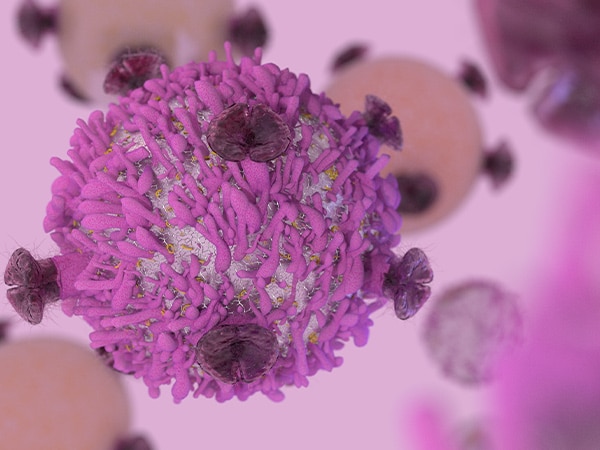A New Immunotherapy for Bladder Cancer
The FDA has approved a new immune checkpoint inhibitor, durvalumab, for the treatment of certain bladder cancer patients.

The U.S. Food and Drug Administration (FDA) recently announced that it has approved durvalumab (Imfinzi), a new immune checkpoint inhibitor, for the treatment of certain patients with urothelial carcinoma – the most common form of bladder cancer.
The approval was based on results from a phase II clinical trial that showed that 17 percent of the 182 patients who received durvalumab had a partial or complete response, according to the FDA announcement.
The FDA approval of durvalumab was specifically for patients with locally advanced or metastatic urothelial carcinoma whose disease has progressed despite treatment with platinum-based chemotherapy or whose disease progressed within 12 months of neoadjuvant or adjuvant treatment with platinum-based chemotherapy.
Because the approval was based on response data, rather than overall survival, durvalumab’s manufacturer, AstraZeneca, is required by the FDA to conduct additional studies to confirm that the immune checkpoint inhibitor improves survival for patients with urothelial carcinoma.
The response rate was higher – 26 percent ? in the 95 patients whose tumors were found to have high levels of the protein PD-L1 on the surface. The response rate was just 4 percent among those patients whose tumors had low levels of PD-L1. Given these data, the FDA also approved a complementary diagnostic test for use in assessing levels of PD-L1 protein on urothelial carcinoma tissue. While physicians are not required to use this test before treating urothelial carcinoma patients with durvalumab, they may want to use the information it provides when advising patients about treatment options.
Immune checkpoint inhibitors – like durvalumab – are a class of immunotherapeutics that work by releasing brakes on cancer-destroying T cells. Durvalumab targets the protein PD-L1, which normally engages a T-cell brake called PD-1. Once the PD-1 brake is released by durvalumab, the T cells are able to destroy cancer cells.
Durvalumab is the third immune checkpoint inhibitor that targets the PD-1/PD-L1 braking system to be approved by the FDA for treating certain patients with urothelial carcinoma. A fourth was approved shortly thereafter, and a fifth is currently under review. It is hoped that this revolutionary group of immunotherapies will provide benefit to more and more bladder cancer patients like Dave Maddison, who was featured in the AACR Cancer Progress Report 2016.